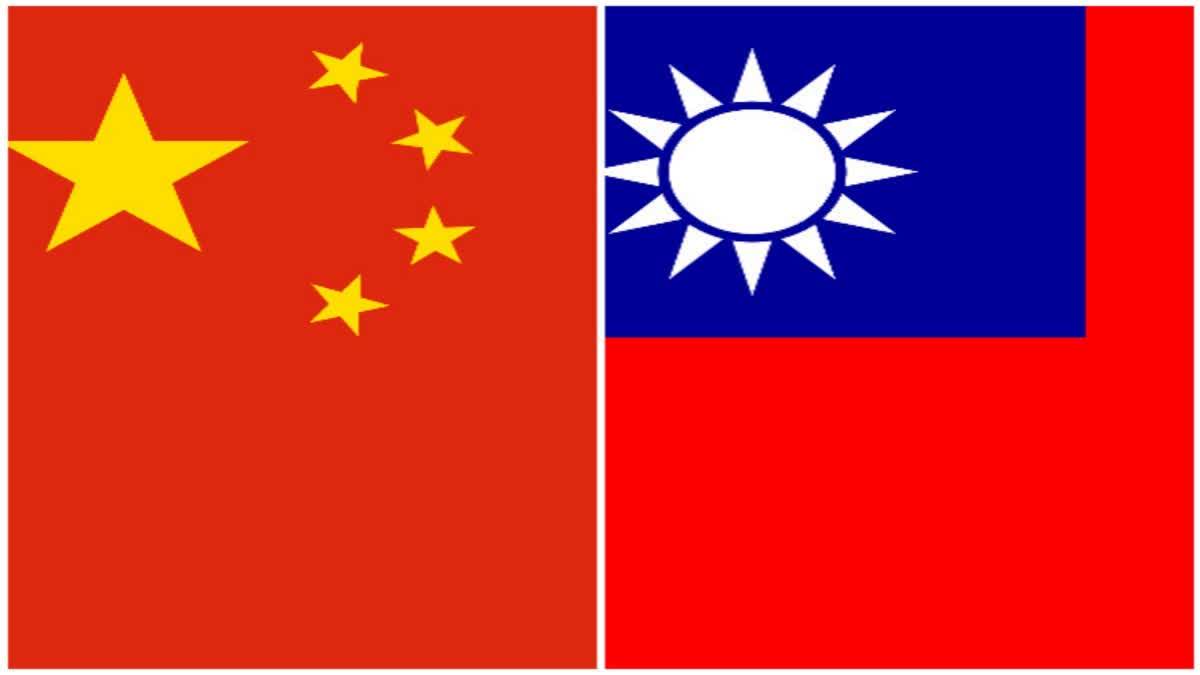New Delhi: Taiwan has urged China to exercise self-restraint and stop undermining peace and stability across the Taiwan Strait and beyond.
China on May 23 launched a two-day military drill around Taiwan called Joint Sword-2024A, escalating tension in the region.
In a post on X, the Ministry of Foreign Affairs, ROC (Taiwan) said, "CPC military drills around Taiwan escalate tension in the region. We urge China to exercise self-restraint and stop undermining peace and stability across the Taiwan Strait and beyond. We will continue to safeguard the cross-strait status quo and firmly uphold our democracy".
It has been evident to all that peace and stability across the Taiwan Strait have become a matter of international consensus, the Ministry of Foreign Affairs (MOFA) said.
The MOFA, Taiwan expressed regret that China, despite continuous and strong international concern over developments in the Taiwan Strait, has repeatedly threatened Taiwan’s democracy and unilaterally disrupted the cross-strait status quo and peace and stability in the Indo-Pacific.
"The Republic of China (Taiwan) will spare no effort in safeguarding the cross-strait status quo and urges China to return to reason and show self-restraint, to stop unilaterally undermining peace and stability across the Taiwan Strait, and to refrain from actions that raise regional tensions", it added.
The MOFA reiterated that Taiwan will continue to firmly uphold democracy. This commitment will not change as a result of any coercion or suppression. Taiwan is a bastion of global democracy and freedom. Moving forward, Taiwan will continue to strengthen cooperative ties with like-minded partners to jointly safeguard the values of freedom and democracy, uphold the rule-based international order, protect the cross-strait status quo and ensure peace and stability in the Indo-Pacific, it said.
The situation remains closely monitored by the international community, as maintaining peace and stability across the strait is crucial for all parties involved.
Meanwhile, the People’s Liberation Army said on Friday that China’s military drills around Taiwan are designed to test its ability to “seize power” over the island as its forces kicked off a second day of large-scale exercises encircling its democratic neighbour.
The drills are the largest in more than a year and come just days after Taiwan swore in its new president, Lai Ching-te. It is pertinent to note that Beijing has denounced Lai as a dangerous separatist and decried his inauguration speech on Monday, during which he called on China to cease its intimidation of Taiwan, which has grown much more pronounced under Chinese leader Xi Jinping.
China kicked off the military exercises on Thursday morning, sending warships and fighter jets around Taiwan and its outlying islands in what it called a strong punishment for separatist acts of Taiwan independence forces.
The European Union as well as lawmakers from the US, Britain and other democracies also criticised mainland China's aggressive military exercises around Taiwan on Thursday, warning that the drills threatened to destabilise the region and add fuel to cross-strait tensions.
Taiwan-China tension and the implications for India
Tension between Taiwan and China can have certain implications for India including geostrategic considerations: India shares borders with China and has historically had tense relations, including a border conflict in 1962. Any escalation between Taiwan and China could potentially affect the geopolitical dynamics in Asia, impacting India's strategic interests.
Trade and economic implications: India has significant trade ties with both Taiwan and China. Any disruption in trade or escalation of tensions could affect India's economy, particularly in terms of supply chains and trade routes.
Diplomatic challenges: India maintains a delicate balance in its relations with both Taiwan and China. India adheres to the "One China" policy, which recognizes Taiwan as a part of China, but also has robust economic and cultural ties with Taiwan. Any escalation between the two could pose diplomatic challenges for India in maintaining this delicate balance.
Security concerns: India may need to reassess its defence posture in light of heightened tensions in the region. Increased military activities or conflicts in the Taiwan Strait could have broader security implications for India, potentially requiring adjustments in its defence strategy.
International alliances and partnerships: India's response to the Taiwan-China tension could impact its relationships with other countries. India may seek to strengthen partnerships with like-minded countries in the region to address shared concerns, or it may choose to adopt a more cautious approach to avoid antagonizing China.
Read



